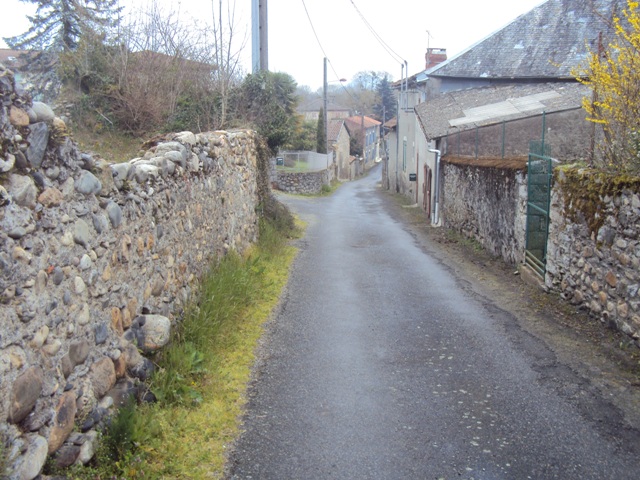My appointment at Gargas was for early in the afternoon, so I was able to have a pleasant and leisurely breakfast. In place of the standard French baguette, there was a much more chewy local loaf known as quatre-banes, which I thought superb, perfect with the fresh country butter and jam. The cuisine of Hautes-Pyrénees, like many other aspects of its culture, is more closely in tune with that of the Basque Country and Catalonia than with northern France (and indeed, the slang expression nordiste is used by the locals with obvious disdain). Beans and spicy sausages, country soups, hard rather than soft cheeses, bread that you can get your teeth into. After breakfast, I still had plenty of time to reach the caves on foot. From Lombrès, I walked down the road to the village of Aventignan (about three times larger than Lombrès), then along a minor road to the cave’s reception center, little more than 4km.
Only two cars passed me, and there was nothing much along the way but empty fields until the hills and forest started. The weather was cool and overcast. Often, when I’m walking, music pops into my head in surprisingly complete form, and this time it was the Shepherd’s Song from Canteloube’s Chants d’Auvergne, sung in Old Occitan, the language of Southern France before it was conquered, re-educated, and regimented by the nordistes. The dialect of the Auvergne was considerably different from the Gascon spoken in this region, but it neverltheless puts across the Southern mood:
As gaïré dè buon tèms?
Dio lou baïlèro lèrô,
Lèrô lèrô lèrô lèrô baïlèro lô.
Pastré lou prat faï flour,
Li cal gorda toun troupel.
Dio lou baïlèro lèrô,
Lèrô lèrô lèrô lèrô baïlèro lô.
Pastré couci foraï,
En obal io lou bel riou!
Dio lou baïlèro lèrô,
Lèrô lèrô lèrô lèrô baïlèro lô.
(“Shepherd across the river, your work there is hard. Look, the meadows here are in bloom. You should watch your flock on this side…. Shepherd, the water divides us, and I can’t cross it”). Nothing at all like French. Incomprehensible to all but a few surviving speakers of the Old Tongue, but the melody conveys such a wonderful sadness and yearning that it would be understood emotionally in Tokyo. In fact, it resembles many Japanese folk melodies. Read more »
